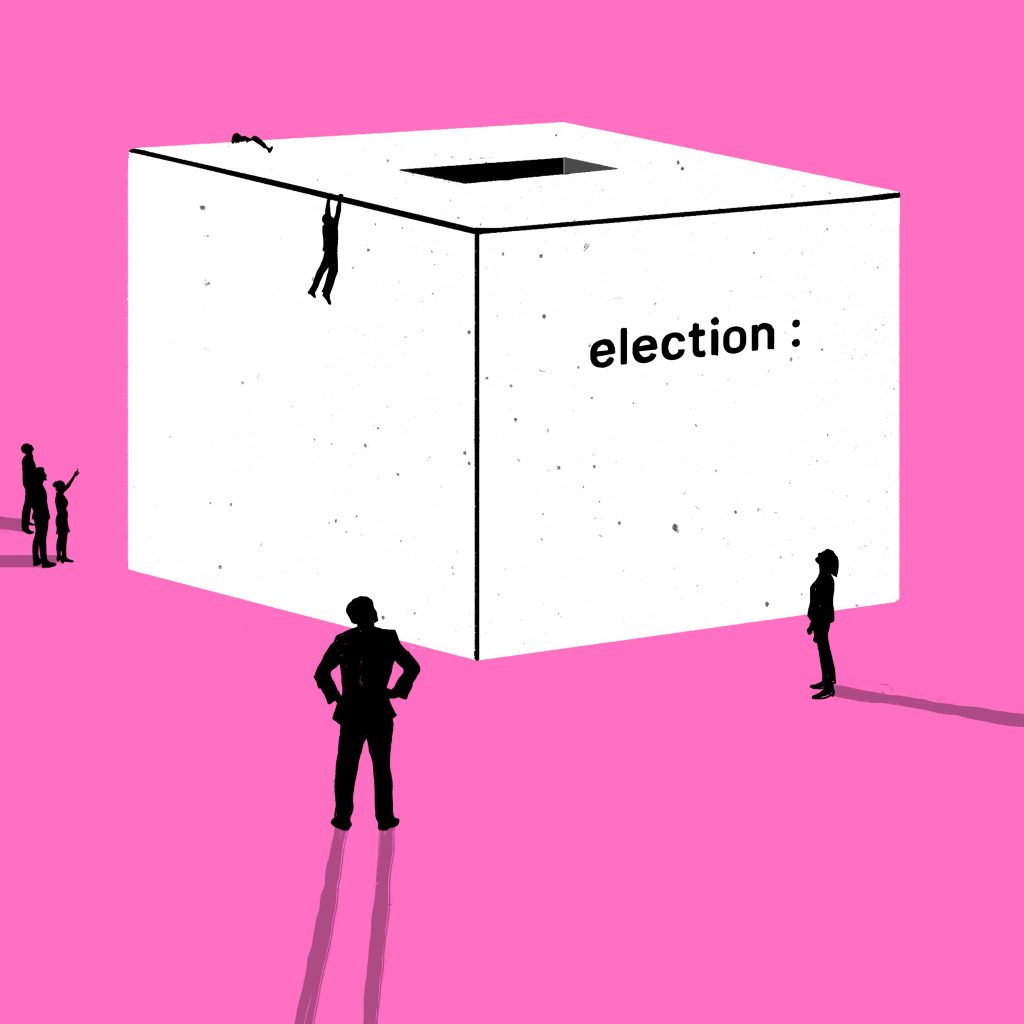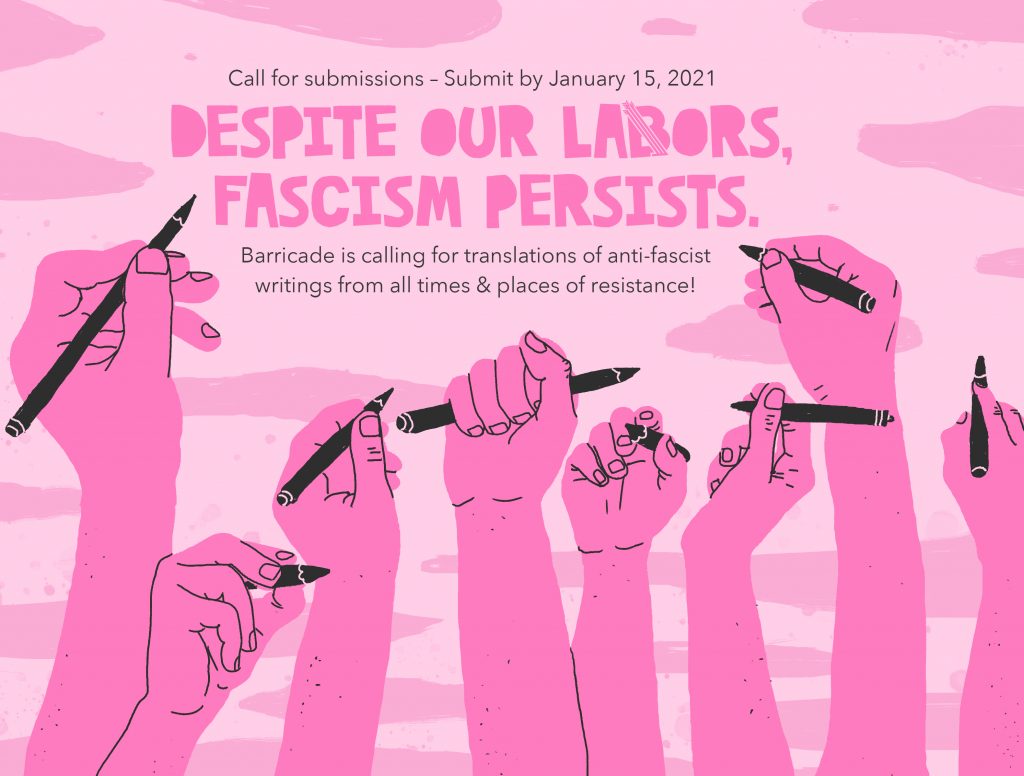We believe that power functions in part by controlling the movement of information.
In a moment like the one we find ourselves in, when fascistic rhetoric and actions persist at the highest levels of governments around the world, the situation on the ground shifts rapidly. A print journal like Barricade, with both the care put into production and the material demands of publishing, is not always equipped to respond with the speed the moment demands of us.
A barricade is a makeshift form of opposition.
With that in mind, we offer you, our readers, another makeshift form, our new forum that we christen here as “Ramparts”. In this democratized form, we hope to bring you biweekly offerings taking a variety of shapes in a variety of registers, from book, film, and press reviews, to translations of blog posts and news articles, to interviews, editorials, antifascist playlists, and everything in between. This forum will allow us to further probe the sorts of questions the texts we publish raise, to give space to reflect on and respond to those texts, and to explore new developments in the sociopolitical landscape as they arise.
Ramparts is a forum for the publication of writing against fascism and authoritarianism and other forms of domination and control.
A forum is fundamentally a conversation. And ours is a conversation we invite you to join. We are interested in publishing reader contributions of any of the sorts of texts we’ve mentioned, as well as any others fitting our mission, but that we’ve not yet thought of or listed. To submit to the forum, email submissions@barricadejournal.org, and check our submissions page for further guidelines.
As with the journal, everything published on the blog falls under the Creative Commons license Attribution-NonCommercial-NoDerivatives, which means the texts may be shared, but only for non-commercial purposes and only with proper attribution to the author and translator.



